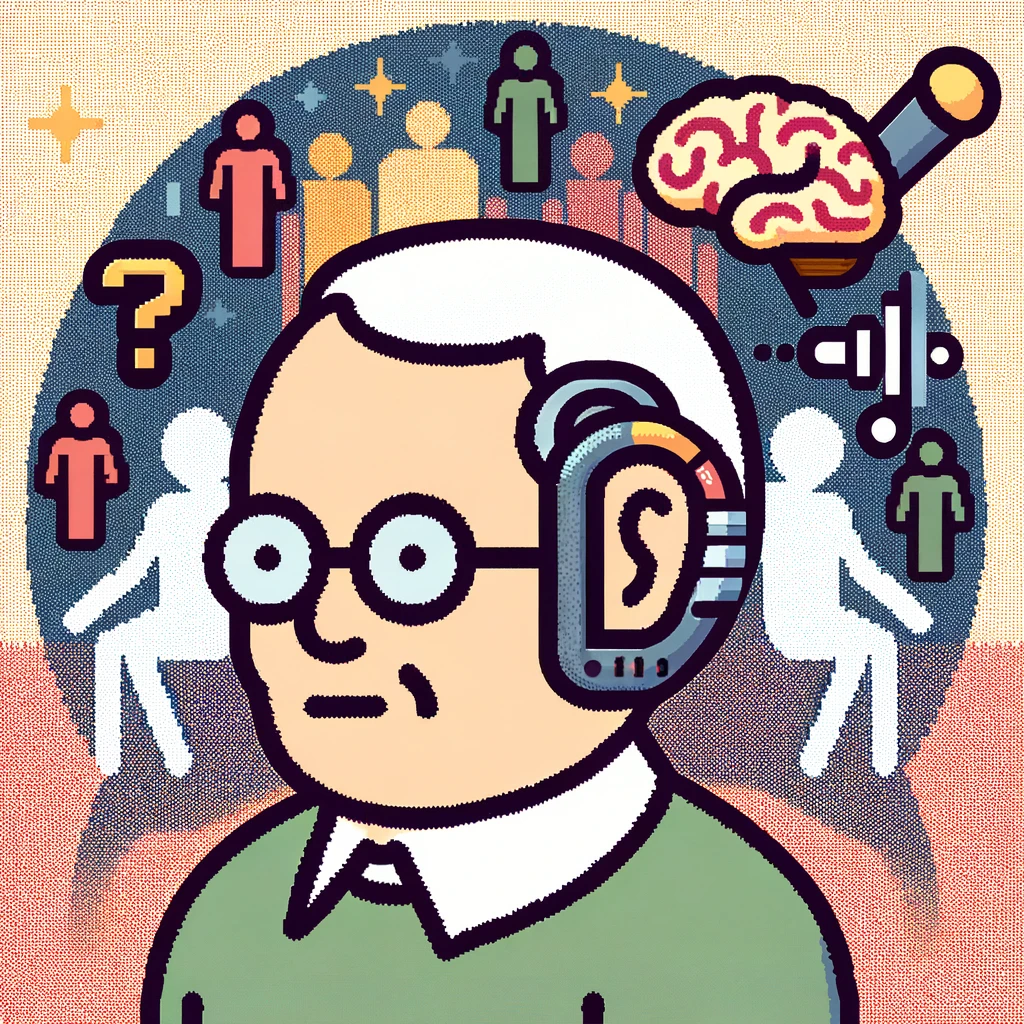
Hearing Loss, Cognitive Impairment, and Isolation
In a world where the aging population is growing, the impact of age-related conditions like hearing loss on cognitive health has become an increasingly important area of study. The recent article, “Does social isolation mediate the association between hearing loss and cognition in adults? A systematic review and meta-analysis of longitudinal studies”, dives deep into this issue, exploring whether social isolation plays a mediating role between loss of hearing and cognitive impairment.
The Intricate Link Between Hearing Loss and Cognition
Age-related hearing loss is more than just a challenge in perceiving sounds; it’s a factor that can profoundly affect an individual’s social and cognitive realms. The study highlights how a decline in hearing ability can lead to social withdrawal and isolation and eventually impact cognitive health, potentially increasing the risk of conditions like dementia. This is not just a health issue but a social one, affecting the quality of life and independence of millions globally.
Unraveling the Role of Social Isolation
The crux of the study lies in its systematic review of various longitudinal studies, assessing whether social isolation indeed serves as a bridge connecting hearing loss and cognitive decline. The findings are intriguing: while there’s substantial evidence linking decreased hearing ability with later cognitive impairment, the role of social isolation as a mediator remains unclear. This gap in understanding opens new avenues for research, urging the scientific community to delve deeper into how social isolation impacts cognitive health in the context of hearing loss.
Implications for Healthcare and Society
Recognizing the potential link between hearing loss and cognitive decline underscores the importance of regular hearing checks, especially as we age. For healthcare systems, this calls for integrating auditory health into routine care for older adults, potentially mitigating cognitive decline risks.
Moreover, the study highlights the need for a more holistic approach to managing this condition that includes not just medical interventions like hearing aids but also strategies to tackle social isolation. Communities and healthcare providers must explore innovative ways to keep individuals with hearing loss socially engaged, thereby potentially protecting their cognitive health.
A Diverse Approach to Funding and Research
The findings underscore the importance of diversifying funding and research efforts in this field. By supporting studies that explore the multifaceted impact of hearing loss, including social and cognitive aspects, we can develop more effective strategies to tackle this growing challenge. This isn’t just about funding more research but about supporting diverse approaches, from medical interventions to social initiatives, to comprehensively address the issue.
Transform Information into Action – Subscribe Now!
Your key to unlocking the power of public health knowledge awaits! ‘This Week in Public Health’ is not just a newsletter; it’s a catalyst for informed action. With a focus on cutting-edge research, community health successes, and advocacy insights, each issue empowers you to make a tangible impact. Subscribe for free and turn information into action today!



